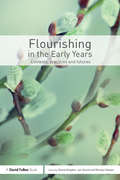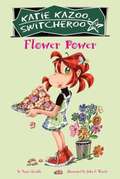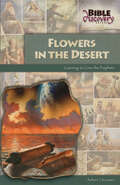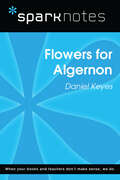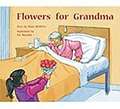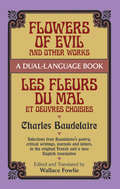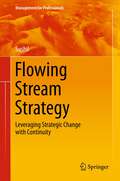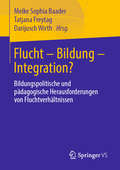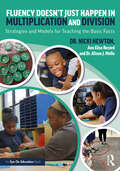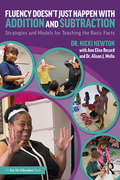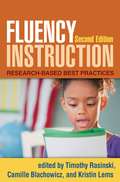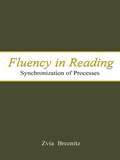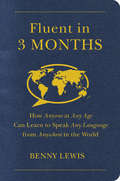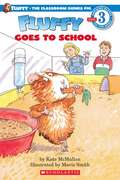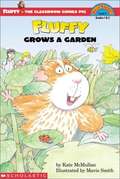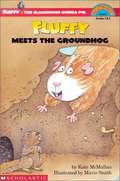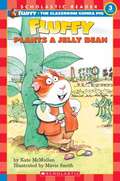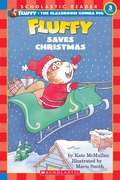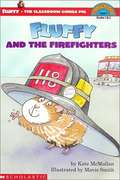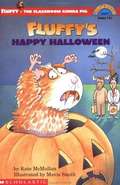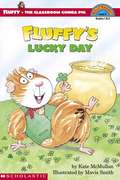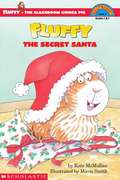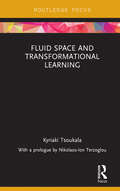- Table View
- List View
Flourishing in the Early Years: Contexts, practices and futures
by Zenna Kingdon, Jan Gourd and Michael GasperIf young children are to flourish and become happy, confident and motivated learners, they need to develop in an environment that gives them the opportunities and freedom to play and learn, along with the support of parents and practitioners who are flourishing themselves. This invaluable text looks at the conditions that enable all those engaged in the early years sector to flourish, covering themes such as the outdoor environment, the curriculum, parent partnership, equality and ethical practice. Divided into three sections, each part covers: Concepts: A consideration of how flourishing is framed by political, historical and policy frameworks. Practices: Exploring the issues that early years practitioners are faced with when engaging with parents and multi-agent professionals within their setting. Futures: Examining some of the long-term issues that may need to be revisited on a regular basis to enable continual and flourishing development to occur. With key points and reflective tasks, this book will be valuable reading to all students and practitioners working in the early childhood education and care sector who want to ensure that the children in their care are given the best possible start in life.
Flower Power (Katie Kazoo Switcheroo #27)
by Nancy KrulikOne afternoon Katie overhears Mr. G. say he's cutting off his ponytail and picking up a suit. Mr. G. in a suit? Something strange is going on. Of course, Suzanne thinks Mr. G. is looking for another job. The kids in 4A can't let Mr. G. leave! So they devise a plan to make sure he stays for good. But when Katie turns into Mr. G., she discovers that she and her friends may have made their problem even worse . . .
Flowers In The Desert: Learning to Love the Prophets (Bible Discovery Series)
by Robert J KoesterIt isn’t always easy to read through the books of the Bible by Old Testament prophets.Laws, warnings, and God’s wrath seem to dominate the Old Testament landscape, and prophets are often channels for his righteous judgment. However, when we look closely, we see that it is through these men that the beauty of the gospel message begins to bloom.Flowers in the Desert will help you appreciate the Old Testament prophets and the messages they conveyed to God’s people. It will also provide a sense of purpose when you’re reading through the Old Testament books of the Bible. From Isaiah to Malachi, you’ll discover the gospel flowers that bloom even in the most barren landscape.This book is part of the Bible Discovery Series, which provides you with background resources to help you unearth and understand the Bible’s greater meaning for you.
Flowers for Algernon (SparkNotes Literature Guide Series)
by SparkNotesFlowers for Algernon (SparkNotes Literature Guide) by Daniel Keyes Making the reading experience fun! Created by Harvard students for students everywhere, SparkNotes is a new breed of study guide: smarter, better, faster.Geared to what today's students need to know, SparkNotes provides:chapter-by-chapter analysis explanations of key themes, motifs, and symbols a review quiz and essay topics Lively and accessible, these guides are perfect for late-night studying and writing papers.
Flowers for Grandma: Individual Student Edition Yellow (levels 6-8) (Rigby Pm Stars)
by Dawn McMillanElla comes home and finds out that her Grandma is in hospital. Ella wants to take her red flowers from the garden.
Flowers of Evil and Other Works: A Dual-Language Book (Dover Dual Language French Ser.)
by Charles BaudelaireWhen Flowers of Evil was first published in 1857, the book almost immediately became the subject of an obscenity trial, and for several generations afterward its themes of eroticism, lesbianism, revolt and decay earned the author a reputation for depravity and morbidity. It was not until 1949 that the French courts removed the ban originally imposed on Baudelaire's masterpiece.Today, Flowers of Evil is regarded as the poet's greatest work and perhaps the most influential book of French poetry ever written. In assessing Baudelaire's importance in literature, Wallace Fowlie, distinguished scholar, critic and Baudelaire specialist, describes him as "the poet and thinker of our age, of what we like to call modernity."This handsome dual-language edition combines Flowers of Evil with a selection of the poet's other significant compositions, including prose poems from Spleen of Paris, a poignant collection reflecting Baudelaire's pessimism towards the teeming city and his compassion for its less successful inhabitants. Readers will also find critical essays on art, music and literature, including a discussion of Edgar Allan Poe's poetry; and Baudelaire's personal letters to his mother and female acquaintances. Edited and translated by Professor Fowlie, this authoritative edition contains excellent line-by-line English translations with the original French text on the facing pages.Students of French language and literature as well as poetry lovers with some knowledge of French will welcome this volume by one of the greatest European poets of the 19th century.
Flowing Stream Strategy: Leveraging Strategic Change with Continuity
by Sushil SushilThough the concern regarding the confluence of continuity and change is well accepted, there is hardly any well known framework in the literature that can be used as a benchmark to deal with this paradoxical issue. Keeping in view the significance of the topic and the lack of practical frameworks in managing continuity and change this book is an endeavor to fill the gap. The main proposition of the book is that the strategic management of change could be better leveraged with clear understanding of continuity of the organization and consciously managing the vital and desirable areas of continuity along with change, rather than leaving the continuity to be managed by default. The continuity of any company provides the bedrock along which the flow of change could be channelized. It adopts flowing stream as the principal metaphor for continuity and change to be taken side by side. It can be treated as a stepping stone to inspire a lot of research in this area.
Flucht – Bildung – Integration?: Bildungspolitische und pädagogische Herausforderungen von Fluchtverhältnissen
by Meike Sophia Baader Tatjana Freytag Darijusch WirthIn diesem Band werden Fluchtverhältnisse aus Sicht verschiedener wissenschaftlicher Disziplinen beleuchtet. Zudem wird die Erfahrungsperspektive von Praktiker_innen in unterschiedlichen Handlungsfeldern aufgenommen. Theoretische, historische und bildungspolitische Rahmungen, Formen von Verletzlichkeiten im Kontext von Fluchtverhältnissen sowie Möglichkeiten der Teilhabe und Bildung stehen im Zentrum.
Fluency Doesn't Just Happen in Multiplication and Division: Strategies and Models for Teaching the Basic Facts
by Nicki Newton Ann Elise Record Alison J. MelloFluency in math doesn’t just happen; it is a well-planned journey. In this book, you’ll find practical strategies and activities for teaching your elementary students basic multiplication and division.The authors lay out the basic framework for building math fluency using a cycle of engagement (concrete, pictorial, abstract) and provide a multitude of examples illustrating the strategies in action. You’ll learn how to help students to model their thinking with a variety of tools; keep students engaged through games, poems, songs, and technology; assess student development to facilitate active and continuous learning; implement distributed practices throughout the year; and boost parental involvement so that students remain encouraged even as material becomes more complex.A final chapter devoted to action plans will help you put these strategies into practice in your classroom right away. Most importantly, you’ll open the door to deep and lasting math fluency.
Fluency Doesn't Just Happen with Addition and Subtraction: Strategies and Models for Teaching the Basic Facts
by Nicki Newton Ann Elise Record Alison J. MelloFluency in math doesn’t just happen! It is a well-planned journey. In this book, you’ll find practical strategies and activities for teaching your elementary students basic addition and subtraction facts. The authors lay out the basic framework for building math fluency using a cycle of engagement (concrete, pictorial, abstract) and provide a multitude of examples illustrating the strategies in action. You’ll learn how to: help students to model their thinking with a variety of tools; keep students engaged through games, poems, songs, and technology; assess student development to facilitate active and continuous learning; implement distributed practices throughout the year; boost parental involvement so that students remain encouraged even as material becomes more complex. A final chapter devoted to action plans will help you put these strategies into practice in your classroom right away. Most importantly, you’ll open the door to deep and lasting math fluency.
Fluency Instruction, Second Edition
by Camille Blachowicz Timothy RasinskiThis accessible guide brings together well-known authorities to examine what reading fluency is and how it can best be taught. Teachers get a clear, practical roadmap for navigating the often confusing terrain of this crucial aspect of balanced literacy instruction. Innovative approaches to instruction and assessment are described and illustrated with vivid examples from K-12 classrooms. The book debunks common misconceptions about fluency and clarifies its key role in comprehension. Effective practices are presented for developing fluency in specific populations, including English language learners, adolescents, and struggling readers. New to This Edition Reflects advances in fluency research and the ongoing development of exemplary instructional approaches. Three new chapters on English language learners. Chapters on adolescent fluency, reading expressiveness, oral reading instruction, and text selection.
Fluency in Reading: Synchronization of Processes
by Zvia BreznitzThis is the first book to examine in-depth the crucial role of the speed of information processing in the brain in determining reading fluency in both normal and dyslexic readers.Part I explains fluency in reading from both traditional and modern perspectives. Fluency has historically been viewed as the outcome of other reading-related factors and has often been seen as a convenient measure of reading skills. This book, however, argues that fluency has a strong impact on other aspects of reading and plays a central role in the entire reading process.Part II deals with the determinants of reading fluency. Chief among these is the speed of information processing in the brain. Using both behavioral and electrophysiological evidence, the book systematically examines the features of processing speed in the various brain systems involved in reading: visual-orthographic, auditory-phonological, and semantic and shows how speed of processing affects fluency in reading.Part III deals with the complex issues of cross-modal integration and specifically with the need for effective synchronization of the brain processes involved in reading. It puts forward the Synchronization Hypothesis and discusses the role of the Asynchrony Phenomenon as a major factor in dyslexia. Finally, it summarizes research on manipulating reading rate by means of the Acceleration method, providing evidence for a possible intervention aimed at reducing Asynchrony.Key features of this outstanding new book include:*Expanded View of Fluency. Reading fluency is seen as both a dependent and an independent Variable. Currently available books focus on reading rate solely as the outcome of other factors whereas this volume stresses that it is both an outcome and a cause.*Information Processing Focus. Fluency itself is determined to a large extent by a more general factor, namely, speed of processing in the brain. The book presents wide-ranging evidence for individual differences in speed of processing across many subpopulations.*Brain Synchronization Focus. The book posits a new theory arguing that effective reading requires synchronization of the different brain systems: visual orthographic, auditory-phonological, and semantic.*Research-Based Interventions. Interventions to enhance fluency and, thereby, reading skills in general are presented in detail.*Author Expertise. Zvia Breznitz is Head of the Department of Learning Disabilities and Director of the Laboratory for Neurocognitive Research at Haifa University in Israel, where she has been researching this topic for over a decade.This book is appropriate for researchers and advanced students in reading, dyslexia, learning disabilities, cognitive psychology, and neuropsychology.
Fluent in 3 Months: How Anyone at Any Age Can Learn to Speak Any Language from Anywhere in the World
by Benny LewisBenny Lewis, who speaks over ten languages—all self-taught—runs the largest language-learning blog in the world, Fluent In 3 Months. Lewis is a full-time "language hacker," someone who devotes all of his time to finding better, faster, and more efficient ways to learn languages. Fluent in 3 Months: How Anyone at Any Age Can Learn to Speak Any Language from Anywhere in the World is a new blueprint for fast language learning. Lewis argues that you don't need a great memory or "the language gene" to learn a language quickly, and debunks a number of long-held beliefs, such as adults not being as good of language learners as children.
Fluffy Goes to School (Fluffy the Classroom Guinea Pig #5)
by Kate McmullanHis name may be Fluffy, but the guinea pig in Ms. Day's class is determined to prove how mighty and brave he is by captaining a stormy boat, driving a police car, and flying a spaceship.
Fluffy Grows a Garden (Fluffy the Classroom Guinea Pig #18)
by Kate McmullanMs. Day's class is planting a garden and Fluffy the guinea pig wants to help. So he learns that bees and ladybugs can help the plants, but those slugs have to go!
Fluffy Meets the Groundhog (Fluffy the Classroom Guinea Pig #13)
by Kate McmullanGroundhog Day inspires the class to celebrate Groundpig Day with their guinea pig Fluffy, and Fluffy gets to help an unhappy groundhog.
Fluffy Plants a Jelly Bean (Fluffy the Classroom Guinea Pig #25)
by Kate McmullanPutting a new twist on a familiar tale, this reader stars Fluffy the classroom guinea pig. When Fluffy plants a jelly bean in the classroom's garden, he's in for a big surprise.
Fluffy Saves Christmas (Fluffy the Classroom Guinea Pig #6)
by Kate McmullanFluffy the class guinea pig goes home for the holidays with Jasmine and ends up helping Santa by delivering presents with the help of an all-guinea-pig sled team.
Fluffy and the Firefighters (Fluffy the Classroom Guinea Pig #4)
by Kate McmullanAfter firefighters visit Ms. Day's classroom, Fluffy gets a chance to see what they do firsthand, but Fluffy really wants to be a firefighter. But how can a guinea pig fight fires?
Fluffy and the Snow Pig (Fluffy the Classroom Guinea Pig #22)
by Kate McmullanThe students in the classroom of Fluffy the guinea pig dress him in a snowsuit, make a snow pig, and have a snowball party.
Fluffy's Happy Halloween (Fluffy the Classroom Guinea Pig #3)
by Kate McmullanIt's Halloween and Count Fluffula is ready! Fluffy leads the class Halloween Parade, impersonates the Pumpkin of Doom, and dines on Monster Eyeballs!
Fluffy's Lucky Day (Fluffy the Classroom Guinea Pig #23)
by Kate McmullanOn the day of the school's Saint Patrick's Day party, Fluffy the classroom guinea pig learns about and meets a leprechaun.
Fluffy's School Bus Adventure (Fluffy the Classroom Guinea Pig #16)
by Kate McmullanWhen Jasmine forgets to bring Fluffy home with her for the weekend, the fun begins. On a school bus to Jasmine's house, Fluffy discovers purple goo, lollipops, and glitter, becoming Rock Star Fluffy! He even saves the day when the bus breaks down. By the time Fluffy arrives at Jasmine's doorstep, he's ready for dinner . . . and a bath!
Fluffy, the Secret Santa (Fluffy the Classroom Guinea Pig #1)
by Kate McmullanAt Christmastime Fluffy the class guinea pig discovers that he likes both getting presents and giving them.
Fluid Space and Transformational Learning (Routledge Focus on Design Pedagogy)
by Kyriaki TsoukalaFluid Space and Transformational Learning presents a critique of the interlocking questions of ‘school architecture’ and education and attempts to establish a field of questioning that aspectualises and intersects concepts, theories and practices connected with the contemporary school building and the deschooling of learning and of the space within and through which it takes place. Tying together the historicity of architectural theory, criticism and practice and the plural dynamic of social fields and sciences, this book outlines the qualities and modalities of experiential fields of transformational learning. The three qualities of space that are highlighted along the way – activated, polyphonic and playful space – as they emerge (without being instrumentalised) through architecturalised spatial modalities – flexibility, variability, interactivity, taut fluid polyphony, multiplicity, transcendence of boundaries – tend to construct and establish a school environment rich in heretical socio-spatial codes. Meshing cooperative, participatory, intrapsychic and interpsychic dimensions, they invite the factors of learning to a creative, imponderable, transformational disorder and deconstruct dominant conditioned reflexes of a disciplinary, methodical and productive order.
